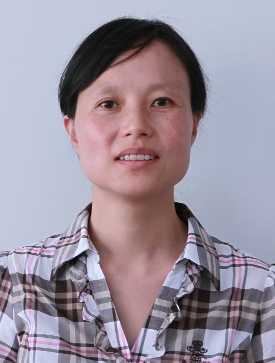阎爱侠
姓名:阎爱侠 职称:教授 邮箱:yanax@mail.buct.edu.cn 办公地址:科技大厦-408 |
|
教育背景:
1991,9–1995,6兰州大学化学系,学士学位
1995,9–2000,6兰州大学化学系,获理学博士学位
工作经历:
2001, 1–2003, 1 德国爱尔兰根大学,作为洪堡研究员进行研究工作
2003,2–2005,1 英国牛津大学化学系,作为研究科学家进行研究工作
2010,4–2010,6 德国波恩大学,作为洪堡研究员进行研究工作
2005,2–今 北京化工大学,在生命科学与技术学院制药工程系工作
主要研究领域:
主要研究领域为计算化学、化学信息学、药物信息学、计算机人工智能辅助药物设计。以重要生物靶标的抑制剂及小分子药物的生物活性为研究对象,充分利用生物信息学、化学信息学、计算化学等工具和方法,进行药物信息及数据挖掘、多种机器学习方法的建模、化合物虚拟筛选等研究,以预测新化合物的生物活性,寻找和设计新的先导化合物。
近年来进行的主要科研工作包括:1、有机化合物及药物ADMET性质的计算预测:包括水溶解度、血脑屏障系数、生物利用度、P型糖蛋白底物、化合物致癌性、生物降解性等;2、针对抗癌药物靶标的抑制剂的计算预测和虚拟筛选:包括酪氨酸激酶(FLT3、BTK和EGFR等)、极光激酶A和B、以及热休克蛋白质HSP90等;3、针对抗病毒药物标靶的抑制剂的计算预测:包括抗艾滋病药物靶标HIV-1整合酶、抗丙型肝炎病毒药物靶标HCV聚合酶和HCV蛋白酶、抗新冠病毒药物靶标3CLpro和Mpro、以及抗流感病毒神经氨酸酶等;4、针对抗炎药物靶标的抑制剂的构效关系预测和虚拟筛选:环氧合酶(COX-1和COX-2)、5-脂氧合酶(5-LOX)、前列腺素E2合酶(mPGES-1)等。
学术兼职:
中国生物信息与药物发现专业委员会常务委员,SAR and QSAR in Environmental Research 期刊编委。
学术成绩:
曾承担国家863、国家自然科学基金、教育部留学回国人员基金和国际合作等科研项目。在国内外重要期刊上发表有关论文100余篇,其中包括SCI论文90余篇(其中单篇最高SCI影响因子为9.6,SCI影响因子之和为355)。论文发表后,被其他研究人员在国际SCI权威和著名期刊上正面引用1300余次,单篇论文最高他引次数119次;并参与4部英文专著有关章节的撰写。
(课题组:http://cadd408.com/
ResearchGate: http://www.researchgate.net/profile/Aixia_Yan/
百度学术: https://xueshu.baidu.com/scholarID/CN-BR74F0NJ
ORCID: http://orcid.org/0000-0003-4811-8510)
获奖及荣誉:
(1) 2001年,获德国洪堡基金会的洪堡学者奖学金 (Alexander von Humboldt Research Fellowship)
(2) 1999年,获中国科学院奖学金
(3) 2012年,北京化工大学 “巾帼建功” 先进个人
(4) 2012年,北京化工大学 “师德先进个人”
代表性著作:
Huo, D.H.; Sun, Z.Q.; Wang, M.L.; Yan, A.X.*Ligand and structure based hierarchical virtual screening cascade for finding novel epidermal growth factor receptor inhibitors, Chemical Biology & Drug Design,2024, 103, e14375.
Li, G.; Li, J.X.; Tian, Y.J.; Zhao, Y.Y.; Pang, X.Y.; Yan, A.X.*Machine learning-based classification models for non-covalent Bruton’s tyrosine kinase inhibitors: predictive ability and interpretability, Molecular Diversity, 2023,Published online: 21 Jul 2023.https://doi.org/10.1007/s11030-023-10696-6
Yin, H.Y.; Lin, C.; Tian, Y.J.; Yan, A.X.*Prediction and Structure–Activity Relationship Analysis on Ready Biodegradability of Chemical Using Machine Learning Method,Chemical Research in Toxicology,2023, 36(4), 617–629.
Tian, Y.; Zhang, Z.; Yan, A.* Discovering the Active Ingredients of Medicine and Food Homologous Substances for Inhibiting the Cyclooxygenase-2 Metabolic Pathway by Machine Learning Algorithms. Molecules, 2023, 28, 6782.
Huo, D.H.; Wang, S.Y.; Kong, Y.; Qin, Z.J.; Yan, A. X.* Discovery of Novel Epidermal Growth Factor Receptor (EGFR) Inhibitors Using Computational Approaches, Journal of Chemical Information and Modeling, 2022, 62(21):5149-5164.
Kong, Y.; Zhao, X.M.; Liu, R.Z.; Yang,Z.W.; Yin H.Y.; Zhao, B.W.; Wang, J.L.; Qin, B.J.; Yan, A.X.* Integrating concept of pharmacophore with graph neural networks for chemical property prediction and interpretation, Journal of Cheminformatics, 2022, 14:52. https://doi.org/10.1186/s13321-022-00634-3
Qin, Z.J.;Xi, Y.;Zhang, S.D.;Tu, G.P.; Yan, A.X.* Classification of Cyclooxygenase-2 Inhibitors using Support Vector Machine and Random Forest Methods, Journal of Chemical Information and Modeling,2019,59 (5),1988-2008.
Kong, Y.; Bender, A.; Yan, A.X.*Identification of Novel Aurora Kinase A (AURKA) Inhibitors via Hierarchical Ligand-Based Virtual Screening. Journal of Chemical Information and Modeling, 2018, 58(1), 36-47.
Wang, M.L.; Li, L; Yu, C.Y.; Yan, A.X.*; Zhao, Z. Z.; Zhang, G.; Jiang, M.; Lv, A.P.; Gasteiger, J. Classification of Mixtures of Chinese Herbal Medicines Based on a Self-Organizing Map (SOM), Molecular Informatics, 2016, 35(3-4), 109-115.
Li, Y.; Xuan, S.Y.; Feng, Y.;Yan, A.X.*Targeting HIV-1 integrase with strand transfer inhibitors, Drug Discovery Today,2015, 20(4), 435-449.
Wang, M.L.; Zhong, M.; Yan, A.X.*; Li, L.; Yu, C.Y. Quantitative structure and bioactivity relationship study on HCV NS5B polymerase inhibitors, SAR and QSAR in Environmental Research, 2014, 25(1), 1-15.
Heikamp, K.; Hu, X.Y.; Yan, A.X.;Bajorath, J. Prediction of Activity Cliffs Using Support Vector Machines, Journal of Chemical Information and Modeling, 2012, 52 (9), 2354-2365.
Yan, A.X.*; Wang, L.; Xu, S.Y.; Xu J. Aurora-A Kinase Inhibitor Scaffolds and Binding Modes, Drug Discovery Today, 2011, 16(5-6),260-269.
Wang, Z.; Chen, Y.Y.; Liang, H.; Bender, A.; Glen, R.C.; Yan, A.X.* P-glycoprotein Substrate Models Using Support Vector Machines Based on a Comprehensive Data set, Journal of Chemical Information and Modeling, 2011, 51(6), 1447-1456.
Yan, A.X.; Grant, G. H.; Richards, W. G. Dynamics of Conserved Waters in Human HSP 90: Implications for Drug Design, Journal of the Royal Society Interface, 2008. 5 (supp3), S199–S205.
Yan, A.X.* Application of Self-Organizing Maps in Compounds Pattern Recognition and Combinatorial Library Design, Combinatorial Chemistry & High Throughput Screening, 2006, 9(6), 473-480.
Yan, A.X. andGasteiger, J., Prediction of Aqueous Solubility of Organic Compounds Based on a 3D Structure Representation, Journal of Chemical Information and Computer Science, 2003, 43(2), 429-434.
Yan, A.X.* Prediction of ADME Properties, in “Applied Chemoinformatics: Achievements and Future Opportunities”, pp333-358, Editors: T. Engel, J. Gasteiger, Wiley-VCH, Weinheim, 2018. (外文专著)
教师寄语:
业精于勤荒于嬉,行成于思毁于随。
招生要求:
英语优秀,计算机较好,专业基础扎实,对药物信息学及计算化学等研究课题感兴趣,并愿意在该研究领域学习和钻研。

